3 tips against annoying wasps & why they are more useful than you think
Especially in the month of August they buzz around our jam sandwiches, barbecue plates and sweet drinks. Because August is the month when they are actively looking for food – and especially sugar. We’ll tell you what tips help against them and show you that the world of wasps is much bigger than most people know and why they are absolutely worth protecting. As a little gimmick, we recommend the insect app from NABU, with which you can distinguish between over 450 species of insects.
With this, we hope you enjoy diving into the exciting world of insects!
1. Three helpful tips against wasps
If you sit down with a cool drink or ice cream in the park or on the balcony for breakfast in the summer, it often doesn’t take long for the first wasps to join you. This can be quite unpleasant, because quite often the animals are quite intrusive. To prevent this from happening, you can use these three simple tricks:
- Distraction food: before eating, place some distraction food a little away from where you are sitting, so that the wasps can eat undisturbed. This way you will also remain undisturbed.
- Spray water: spray the wasps with a little water. The moisture will give the wasps the impression that it will soon rain and they will retreat.
- Cover: make sure your food and drinks are always covered. This will prevent them from getting to your food in the first place.
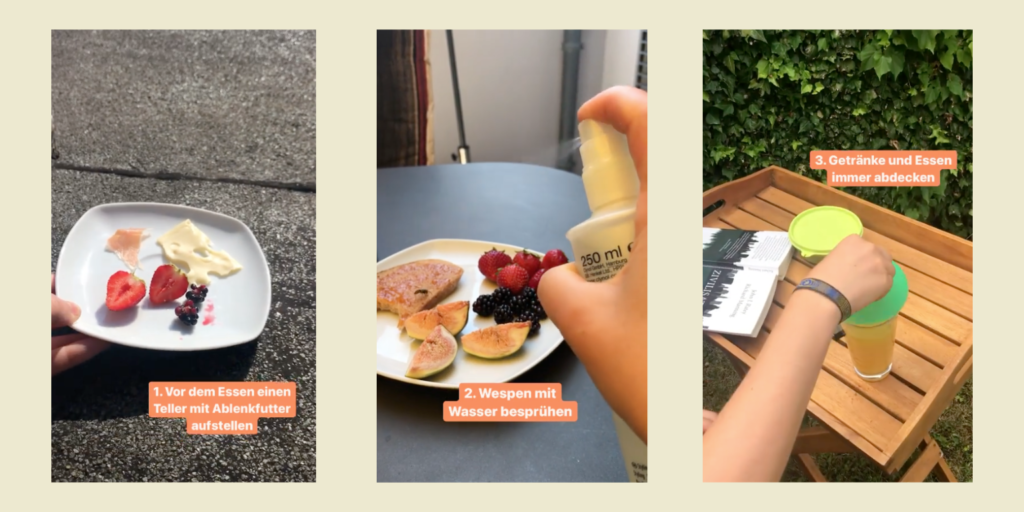
2. Only 2 out of 100 wasp species are intrusive
An interesting fact we learned while researching this topic is that wasps come in an incredible number of forms and species. The wrinkled wasps alone include about 100 species in Europe. Only two of them – namely the Common Wasp and the German Wasp – are the ones we get annoyed with in the summer, when they prey mainly on our sugary foods. Normally, we don’t notice the other wasp species.
If you want to learn more about the different species, we recommend the articles by Deutschland Summt and Plantopedia. In them you will discover, among other things, such exciting creatures as the cuckoo wasp, which – as its name suggests – lays its eggs in foreign wasp states. There are even species that infiltrate and take over entire wasp states, which we personally also find a bit creepy.
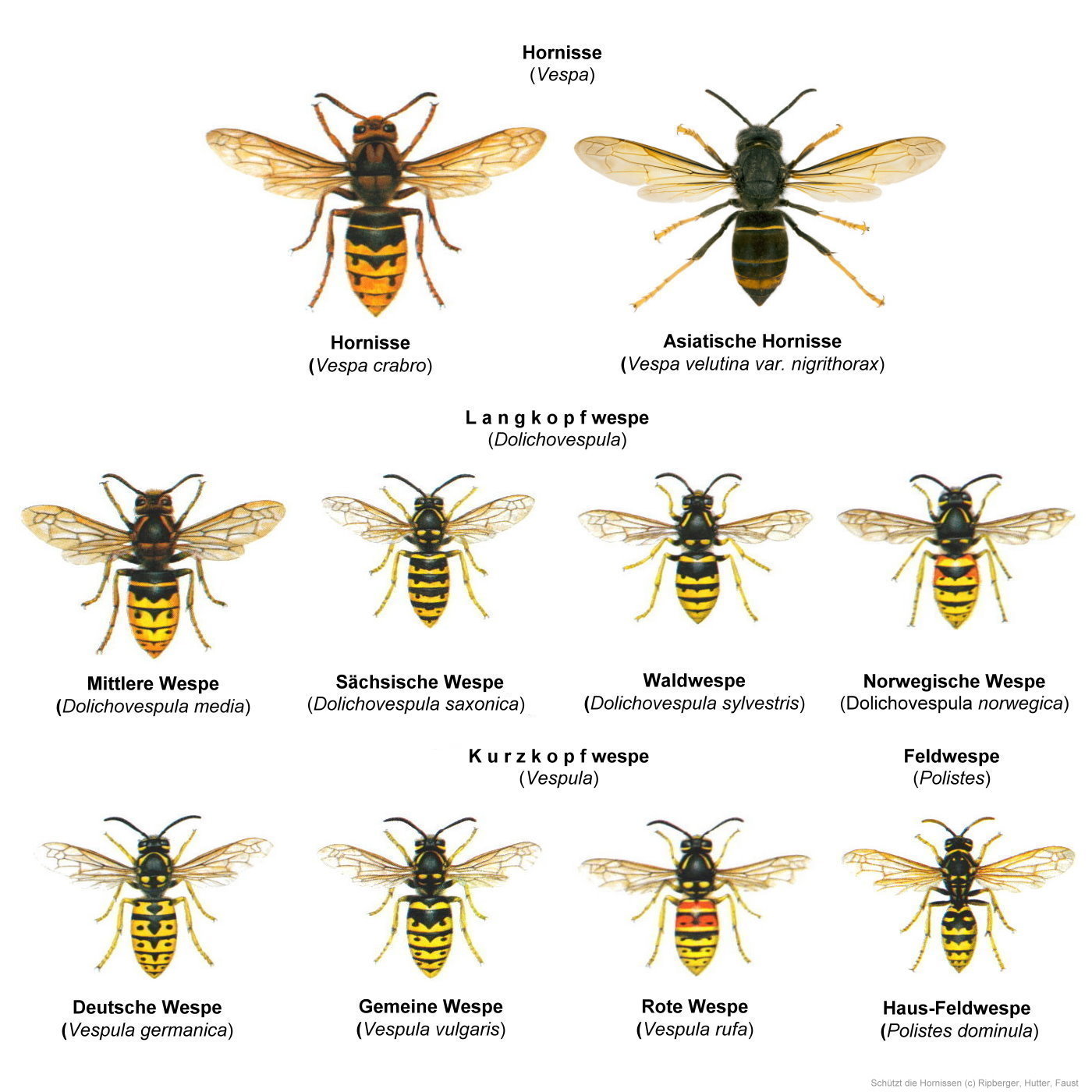
3. Wasps fulfill important ecological functions
In nature, wasps perform several important tasks. On the one hand, they serve as natural pest controllers because they hunt insects to feed their offspring. A hornet colony (yes, hornets also belong to the wasp family) destroys up to 500 grams of pests a day. At the same time, many species are involved in the decomposition of dead animals. Thus they are contributing an important part to the natural cycle.
A second important point is that they also play a part in pollinating plants. In addition, they themselves are also an important part of the food chain for other animals, such as some native bird species.
4. There are many more insects to discover (and protect)
The world of wasps alone is incredibly large and exciting. If you want to take a look beyond that, you can discover a whole universe of insects in very different habitats and with different functions for our ecosystem. The NABU Insect Summer campaign gives you a great insight into this. Here you will find an app for insect identification with over 450 insect portraits as well as the opportunity to participate in the annual counting campaign.
By counting the insects, you help to keep an eye on the population of the different species. Many (native) insects are also becoming increasingly endangered. If you would like to take action, WWF has put together 13 valuable tips for you on how to create more biodiversity on your balcony and in your garden.
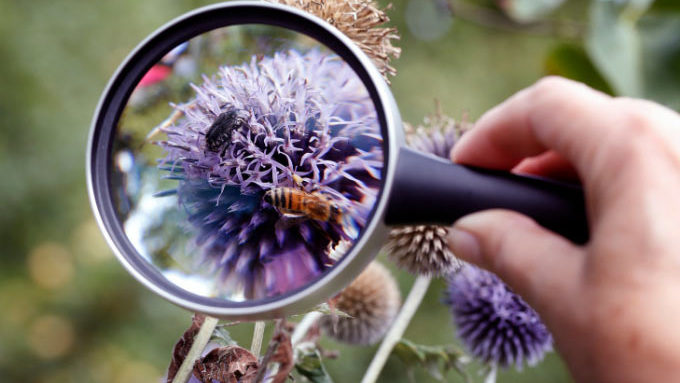
5. Get involved with insect & nature conservation
At vostel.de you will find many opportunities to get actively involved in nature conservation. And thus preserve the habitat for insects. Take a look now and find the volunteering that suits you best.


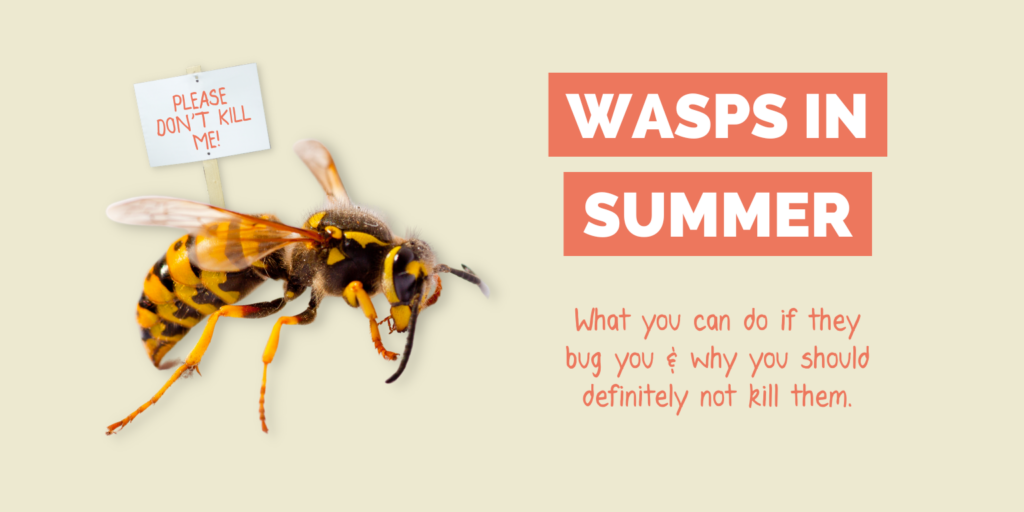



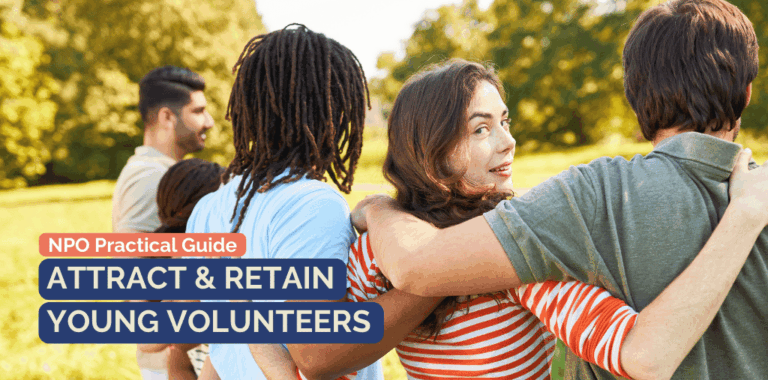


No Comments yet!